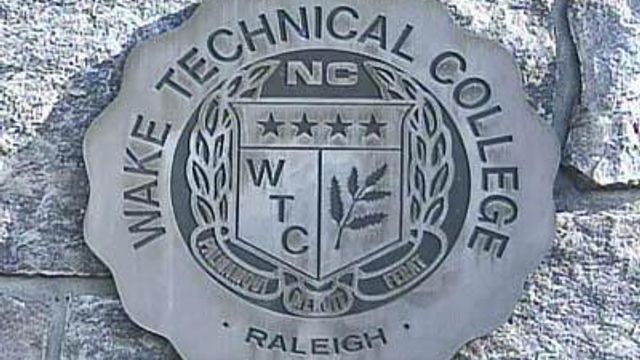Community College Policy on Illegal Immigrants Decried
North Carolina community colleges must accept illegal immigrants as students if they meet admission guidelines, according to a new policy.
Posted — UpdatedPreviously, colleges had the option of rejecting illegal immigrants, even if they were at least 18 and had graduated from high school.
However, a lawyer for the North Carolina Community College System recently issued a memo saying that all 58 campuses needed to fall into line with a 1997 opinion by then-Attorney General Mike Easley.
Wake Technical Community College was among the campuses that previously required students to prove legal residency.
"We will abide by the rules of the State Board of Community Colleges," Wake Tech President Stephen Scott said.
More than half of the community colleges statewide already allowed undocumented immigrants to enroll, and state officials estimated that about 340 such students are attending class.
Students without documentation must pay out-of-state tuition – about $7,400 for a full class-load at Wake Tech – which officials said would likely discourage many of them from applying.
The higher fees also would generate a $2,000 profit per illegal immigrant student for the community colleges, officials said.
But politicians statewide ridiculed the new policy.
“This is a stupid policy," U.S. Rep. Sue Myrick, R-N.C., of Charlotte, said in a statement. "Our community colleges are supposed to educate and train American citizens to enter the work force. But North Carolina wants to educate and train illegal aliens so they can directly compete against American citizens for the same jobs? That is just plain wrong. There is no common sense anymore."
Myrick, a Charlotte Republican, has been deeply involved in the immigration debate in Washington, D.C.
State Sen. Richard Stevens, R-Wake, said he and other legislators would likely push for a change in state law if the policy isn't reversed before the next session of the General Assembly in May.
"The key word is 'illegal.' It's against the law, so you should reward someone for breaking the law? Absolutely not," Stevens said.
Officials with the Latino advocacy group El Pueblo said the new policy provides an opportunity to a younger generation that has much to contribute to U.S. society.
"They would like to have an opportunity to continue their education," said Marisol Jimenez-McGee, advocacy director for El Pueblo. "They came here when they were very young – brought here by the parents – and have since been growing up in North Carolina, alongside every other North Carolina student."
• Credits
Copyright 2024 by WRAL.com and the Associated Press. All rights reserved. This material may not be published, broadcast, rewritten or redistributed.




